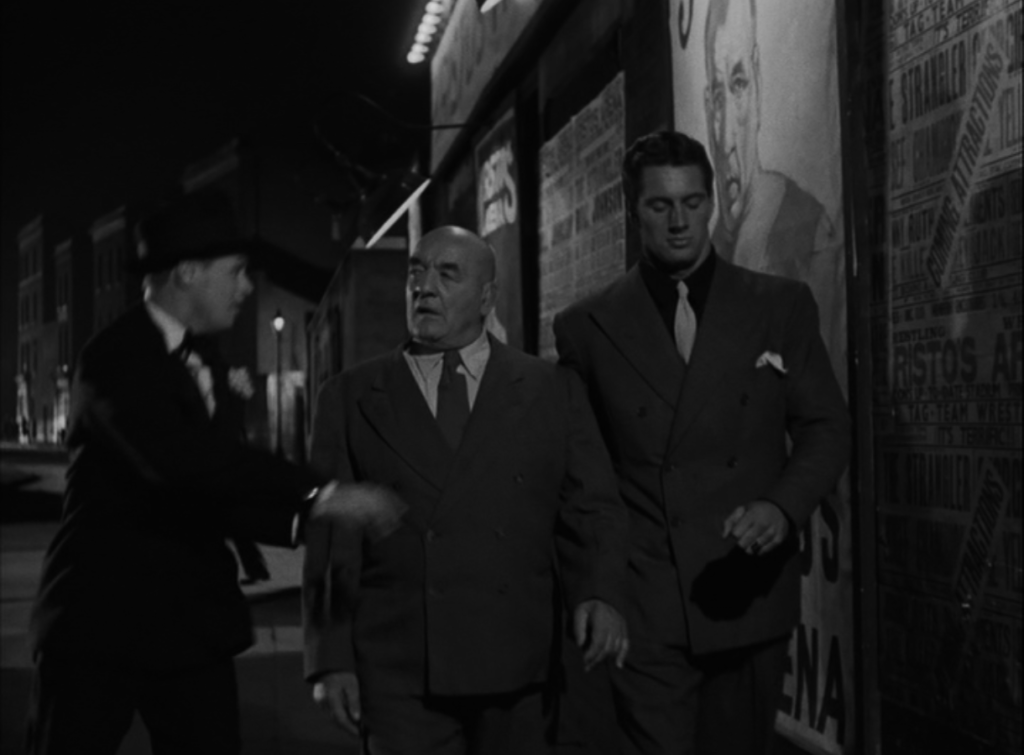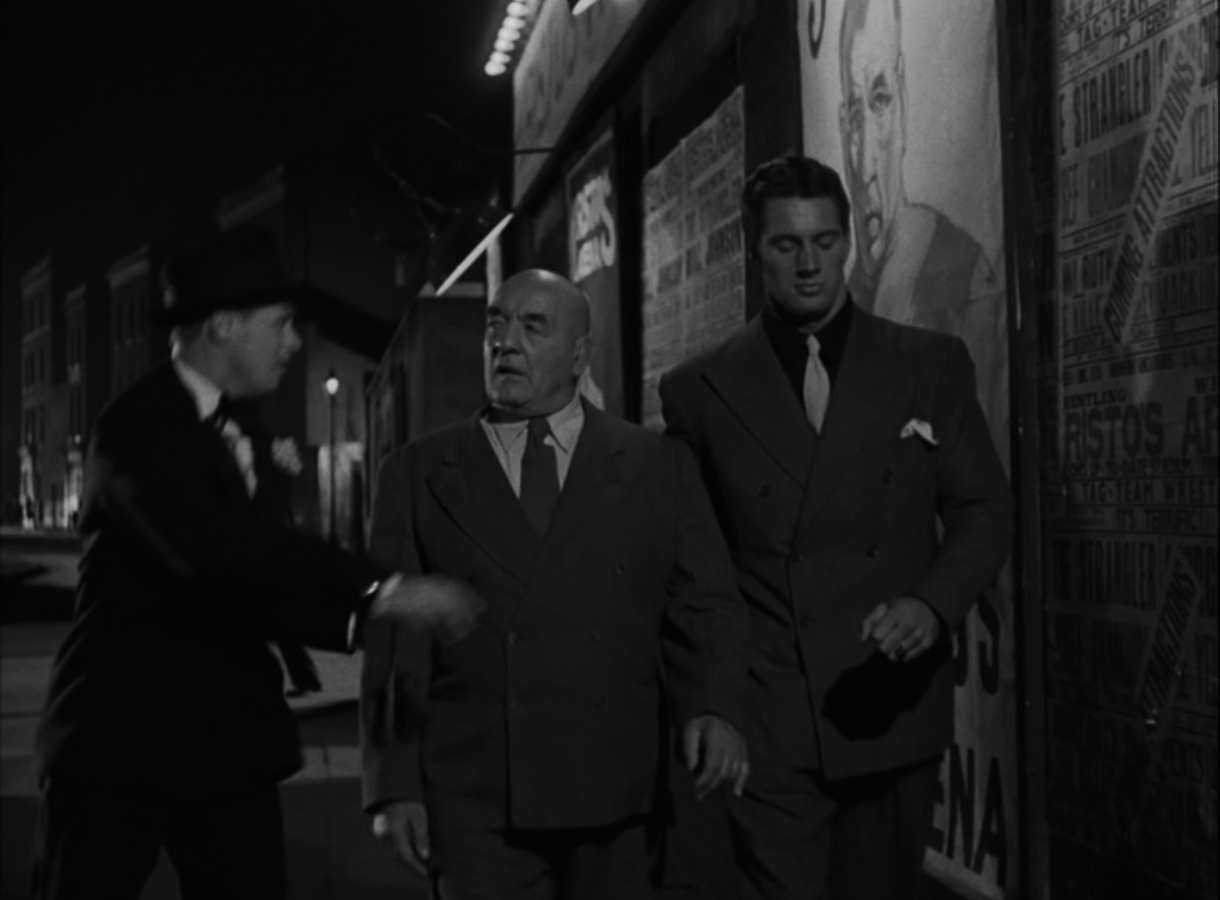Movie Review: Night and the City (1950) directed by Jules Dassin
It is night in the city, and Harry Fabian (Richard Widmark) is returning to the London flat of his girlfriend, Mary Bristol (Gene Tierney). As usual, he owes money to some bad people. But he’s got a great idea for a greyhound race, if he can convince Mary to spot him the few hundred quid needed for seed money. She’s not buying it; she knows Harry has a lot of imagination, but little common sense. In fact, she needs to borrow walking around money from a neighbor herself!

The closest thing to steady work Harry has is as a tout, going about town and persuading people with money to visit the Silver Fox nightclub for which he gets a few shillings a head. The Silver Fox is owned by Philip Nosseross (Francis L. Sullivan) and managed by his wife Helen (Googie Withers). Helen and Harry have a history, but she married Phil for his money–only to find out he’s a tightwad who won’t let her have any of it for her own. Phil very much loves Helen, but knows that he can only control her if he keeps control of the money. Mary also works at the club as a hostess and singer.
Whilst plying his trade in the audience of a wrestling match, Harry is able to make the acquaintance of Gregorius Kristo (Stanislaus Zbyszko) one of the all-time great professional wrestlers, and his protege Nikolas of Athens (Ken Richmond). Gregorius’ son Hermes Kristo (Herbert Lom) has a monopoly on wrestling promotions in London, but now has switched to “show” wrestling which is scripted and more about spectacle than art. The younger Kristo’s star is The Strangler (Mike Mazurki), a dim-witted, ill-tempered brute, who puts on a good show. Gregorius is disgusted by this, and plans to return to Greece with Nikolas in search of old-style Greco-Roman wrestling.
Harry has an idea. While Kristo won’t obey his father, he very much still loves and respects the old man. If Harry can become partners with Gregorius in a Greco-Roman wrestling promotion, Kristo will have to allow Harry to operate rather than oppose his father. And leveraging from that, Harry can eventually gain control of all wrestling operations in London. A life of ease and comfort is at hand…if Harry can somehow get the pounds to fund the initial setup!
Harry’s shady friends are either tapped out themselves or unwilling to take a risk on a new racket. In desperation, Harry tries to get the money from Phil, who just laughs at him. Helen suggests that if Harry can raise half the money himself, then Phil will match it, and Phil agrees. Later, Helen reveals her plan. She’s sold an expensive fur coat and will front Harry the funds so that he can get the rest from Phil. In exchange, she wants Harry to obtain a nightclub license for her own secretly purchased establishment (which was available at a bargain price because the previous owner had gotten it banned by the police.) Once she has her own place, Helen will be able to leave Phil because she knows how to do actual management.
Harry agrees, and Phil becomes his silent partner. What Harry doesn’t know is that Phil has figured out where the money came from, already has been contacted by Kristo’s solicitor, and has his own scheme in play. Harry’s finally on the way to success, but is already doomed.
This black and white film from 1950 is based on a novel by Gerald Kersh and is a fine example of film noir. It takes place almost entirely at night, in the seedy underbelly of London. While several of the characters aren’t themselves doing anything illegal, they associate with people who are, and their occupations aren’t high class. Harry, the protagonist, is not a good person. He may have hustle, but he will lie, cheat, manipulate and steal to achieve his goals, and is easily manipulated by those that recognize that fact. It’s obvious from the beginning that Harry’s not going to get his life of ease and comfort, but almost no one in the story is going to walk away happy.
The director (going on the Hollywood blacklist so this would be his last American-produced film) and actors do a fine job. The wrestling scenes look authentic, and nighttime London stands out as a setting.
I like the sense of impending doom that Harry really should have seen coming, and the way things fall apart for everyone involved.
Content note: Considerable smoking and drinking, Harry’s preference is for gin. The big wrestling scene is brutal despite no blood; you can believe a man is going to die of it.
Overall, an excellent film of its type. My set has both the American and English cuts, which are slightly different in focus, and very different in soundtrack. Recommended to lovers of noir.

